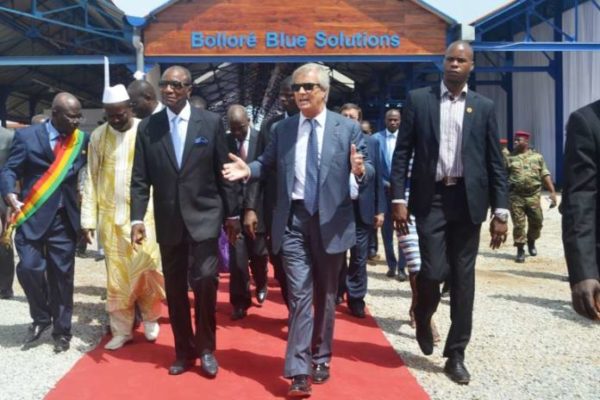In March 2011, the business community questioned the speed with which the Bolloré group had taken over the Conakry container terminal. Seven years later, when French justice unearthed this case and Vincent Bolloré is indicted, it seemed wise to search the archives.
Editorial of March 16, 2011
The way in which the Bolloré group returned to the port of Conakry raises a tsunami of questions. Not only that it is the pursuit of a strategy of permanent closure of the Gulf of Guinea, which we denounce, because it is, we believe, dangerous for the sovereignty of the States concerned and pernicious for the sacrosanct principle of free competition, which can not accommodate such dominant positions.
Not only, as far as we are concerned, by the rejection of a de facto monopoly which is being established all along a route which furiously coincides with the facade of the former French colonies. Symbols also have their weight.
Not, because Bolloré himself, is the survival of a certain system, first colonial, then neocolonial, deriving its weight from the privileged relations with the occupants of the presidential palaces, in civilian clothes or khaki.
Nothing of the sort
This return challenges by its brutal speed with regard to commercial law (which has accustomed us to longer file processing times), by its symbolic burden compared to Guineans, who have not yet finished celebrating the newfound nation. President Alpha Conde, a leading activist for freedom, knows that this notion of democracy goes hand in hand with good governance.
However, democracy and good governance become vain campaign slogans if they do not rely on the promotion of the law. That Bolloré, second in the list of a call for tenders, takes the project back to GETMA, ranked first but which, since the signing of the concession in 2008, did not comply with its specifications, releasing only barely a quarter of the capital is very plausible. Are not we in Africa, where the specifications represent only the visible face of the iceberg?
But, that the contract is terminated by presidential decree, without notice, in an irrevocable way, to be entrusted on the spot to Bolloré, calls inevitably. Especially when we know that the French businessman, in early February, made a highly publicized trip to the Presidential Palace of Conakry, and then to the port of Conakry, offering a guided tour of the container terminal still managed by GETMA.
This is to say that, if the bottom of the file is a banal question of non-compliance with specifications, its form, meanwhile, makes us fear the return of this Africa where the law is instrumentalized to serve the personal relations to the detriment institutional arrangements designed to make justice prevail. Of course, President Conde who, throughout a respectable political career, fought the excesses of this Africa where dictatorial regimes offered lucrative markets to multinationals in exchange for their protections and gifts, has parameters that the press does not have.
But, through this episode, the business community has been able to appreciate its decision-making procedure, fast and clear cut. This information on the determination of the one who wants to leave his country of a permanent geological scandal that mine for more than half a century. In Conakry, the road to the emergence of the rule of law will not be, it is certain, a long quiet river.



